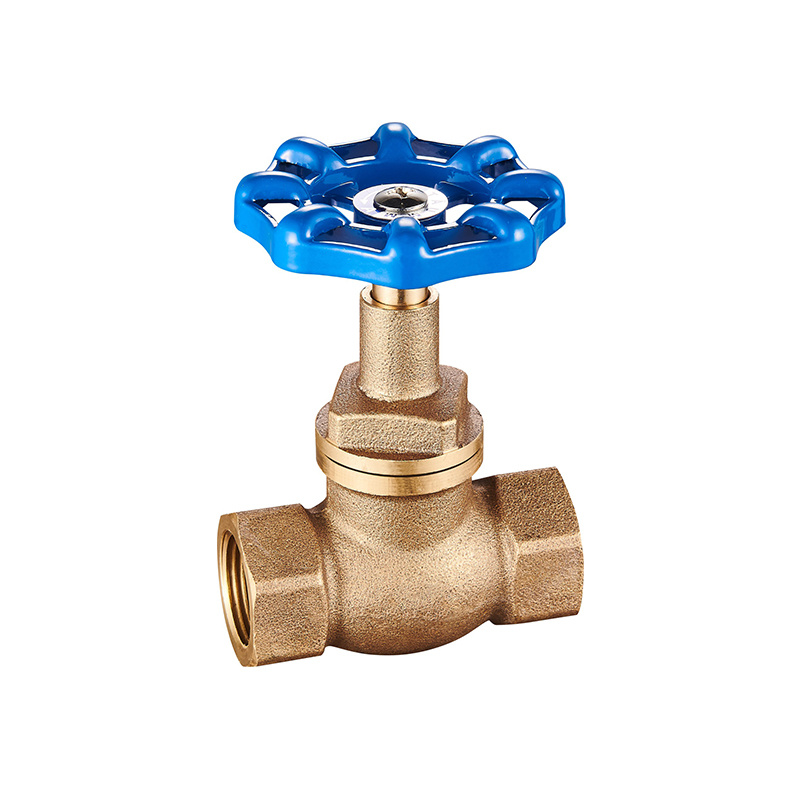23
2025
-
06
Why Choose Brass for Your Next Faucet Valve Project? A Comprehensive Guide
Why Choose Brass for Your Next Faucet Valve Project?
When embarking on a faucet valve project, the material choice can significantly influence the performance and longevity of your installation. Among various options available in the market, **brass** stands out as a premier choice for contractors, plumbers, and DIY enthusiasts alike. This article delves deep into the advantages of brass, positioning it as the optimal material for your next faucet valve project. From its durability to its aesthetic appeal, we will cover everything you need to know about why brass should be your go-to material.
Table of Contents
- Benefits of Brass in Faucet Valve Projects
- Durability and Longevity of Brass
- Corrosion Resistance: A Key Feature
- Aesthetic Appeal of Brass
- Ease of Installation and Maintenance
- Cost-Effectiveness of Brass Valves
- Environmental Considerations
- Conclusion
- FAQs
Benefits of Brass in Faucet Valve Projects
Brass is an alloy primarily composed of copper and zinc, making it a robust material suitable for a wide array of applications. The unique properties of brass provide several advantages, especially when it comes to faucet valves. Here are some benefits of choosing brass:
1. Exceptional Strength
Brass demonstrates remarkable mechanical strength, allowing it to withstand high pressure and temperature fluctuations without deforming. This strength is critical in ensuring that faucet valves perform reliably over their lifespan.
2. Versatility in Design
Brass can be easily machined into various shapes and sizes, enabling the creation of intricate designs and components that enhance the overall look of plumbing fixtures. Its adaptability makes it a preferred choice among manufacturers.
3. High Wear Resistance
The wear resistance of brass ensures that faucet valves can operate smoothly over time, reducing the likelihood of leaks or failures. Choosing brass minimizes repair and replacement costs in the long term.
Durability and Longevity of Brass
One of the primary reasons to consider brass for faucet valves is its durability. Unlike plastic or lower-quality metals, brass exhibits superior resistance to wear and fatigue, ensuring that your faucet valves last for many years without compromising performance.
1. Impact of Temperature Changes
Brass retains its integrity even in fluctuating temperatures, making it suitable for both hot and cold water applications. This resilience is essential for maintaining functionality and preventing premature degradation.
2. Resistance to Cracking
Brass valves are less likely to crack under stress compared to other materials, such as ceramics or plastics. This characteristic not only prolongs the life of the valve but also reduces the risk of leaks, a critical factor in plumbing.
Corrosion Resistance: A Key Feature
Corrosion is a significant concern when selecting materials for plumbing applications. Brass is renowned for its excellent corrosion resistance, making it ideal for faucet valves that are frequently exposed to moisture.
1. Protection Against Rust
The copper content in brass helps prevent rust formation, a common issue with iron or steel components. This property ensures that your faucet valves remain functional and visually appealing, even in humid environments.
2. Reduced Maintenance
With brass's ability to resist corrosion, maintenance becomes less of a hassle. Homeowners and contractors can enjoy peace of mind knowing that their faucet valves will not require frequent checks or replacements due to rust or corrosion-related issues.
Aesthetic Appeal of Brass
Beyond functionality, the visual aspect of faucet valves plays a crucial role in home design. Brass offers a timeless aesthetic that complements various architectural styles.
1. Versatile Finishes
Brass can be finished in multiple ways, including polished, brushed, or antiqued. These finishes can enhance the faucet's appearance, allowing it to blend seamlessly with the overall décor.
2. Classic Look
The warm, golden hue of brass adds a touch of elegance to any space. Whether in a modern kitchen or a traditional bathroom, brass fixtures elevate the overall ambiance.
Ease of Installation and Maintenance
Another compelling reason to choose brass for your faucet valve project is the ease of installation and maintenance associated with this material.
1. Simple Machining
Brass is easy to cut, drill, and shape, allowing for efficient manufacturing and installation processes. This ease of machining translates into lower labor costs and faster project timelines.
2. Low Maintenance Requirements
Once installed, brass valves require minimal maintenance. Regular cleaning and periodic inspections are generally sufficient to keep them functioning optimally, saving time and effort for homeowners and contractors alike.
Cost-Effectiveness of Brass Valves
While the initial investment in brass faucet valves might be higher than other materials, the long-term benefits justify the cost.
1. Longevity Equals Savings
The durability and corrosion resistance of brass translate into fewer replacements over time. This longevity means that homeowners ultimately save money on repairs and replacements, making brass a cost-effective choice.
2. Enhanced Property Value
Investing in high-quality brass fixtures can enhance the value of a property. Homebuyers often appreciate quality materials that promise longevity and reduced maintenance, making brass fixtures an attractive selling point.
Environmental Considerations
In today's eco-conscious society, choosing sustainable materials is more important than ever. Brass, being a recyclable material, aligns with environmental considerations.
1. Sustainability of Brass
Brass can be recycled without losing its properties, making it an environmentally friendly choice for faucet valves. This sustainability appeals to those looking to minimize their ecological footprint.
2. Contribution to Sustainable Construction
Using brass contributes to sustainable construction practices. Incorporating durable materials reduces waste and conserves resources, making brass a responsible choice for environmentally aware consumers.
Conclusion
Choosing brass for your next faucet valve project offers numerous benefits, from exceptional durability and corrosion resistance to aesthetic appeal and cost-effectiveness. Its versatility and ease of installation make it a favored choice among professionals and homeowners alike. By opting for brass, you not only equip your plumbing system with reliable and long-lasting components but also contribute positively to environmental sustainability. When selecting materials for your plumbing needs, brass stands out as a premier option that combines function, form, and environmental responsibility.
FAQs
1. What is the lifespan of a brass faucet valve?
The lifespan of a brass faucet valve can exceed 20 years with proper maintenance, making it a durable choice for any plumbing project.
2. Are brass faucet valves prone to lead contamination?
While some brass alloys may contain lead, many manufacturers now produce lead-free brass options, ensuring safety and compliance with health regulations.
3. Can brass valves be used in outdoor plumbing?
Yes, brass valves are suitable for outdoor plumbing applications due to their corrosion resistance, although they may require some protective measures in extremely harsh environments.
4. How do I clean brass faucet valves?
To clean brass faucet valves, use a mild soap solution and a soft cloth. Avoid abrasive cleaners to maintain the finish and prevent scratches.
5. Is brass a better choice than stainless steel for faucet valves?
While both materials have their advantages, brass offers superior corrosion resistance and a classic aesthetic that many prefer over stainless steel, particularly in traditional settings.
faucet brass valve


